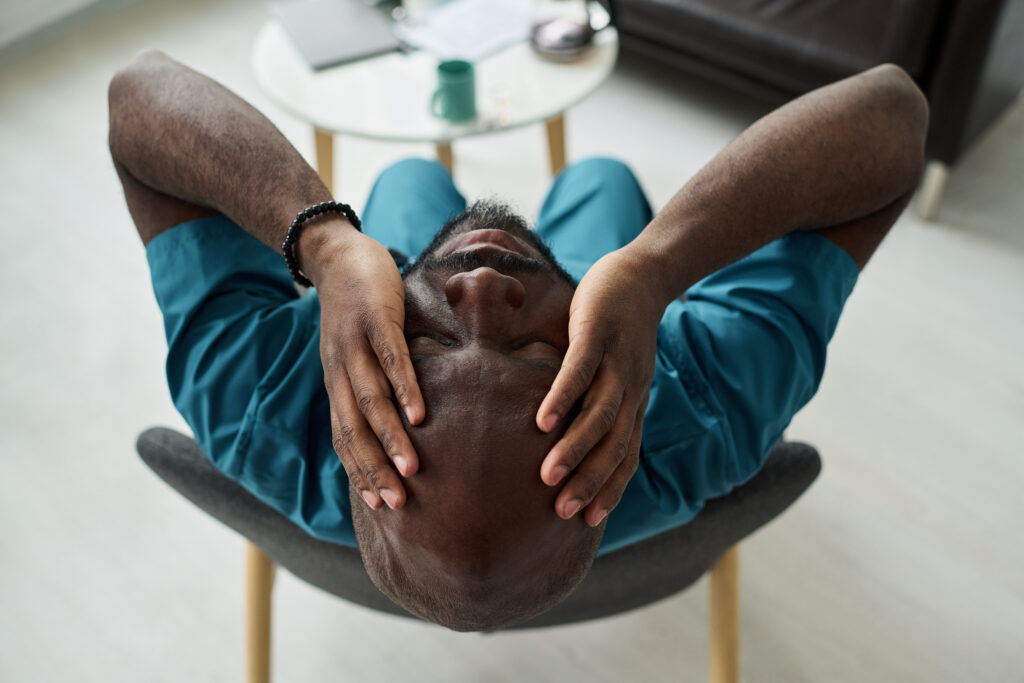Anxiety doesn’t always look like what you expect—especially for men. While panic attacks and visible worry are easy to recognize, the hidden anxiety in men often shows up through irritability, overworking, or physical tension that seems to have no clear cause. Many men push through, convincing themselves it’s just stress, but untreated anxiety can quietly impact relationships, performance, and overall wellbeing.
At the heart of men’s mental health is the understanding that strength includes asking for support. Anxiety therapy in California offers a space for men to explore what’s really behind the pressure, restlessness, or burnout they experience. By recognizing the subtle ways anxiety shows up—and learning practical ways to manage it—men can build resilience, reconnect with themselves, and move through life with greater clarity and calm.
Could You Be Suffering From Anxiety and Not Realize It?
You know yourself pretty well, right? You know what routine works for you, you know how you like your coffee, you know who your friends are, you know what hobbies you enjoy (or hope to enjoy one day), and you know what your ambitions and hopes are.
But do you know why you often have a stomach ache that doesn’t seem to have anything to do with what you ate for dinner yesterday, or weird back pain that isn’t caused or helped by time in the gym? Do you know why little inconveniences send you into a rage that surprises even you? Do you know why you focus on work to the point that it is interfering with your home life, your sleep, and even your weekend time?
It’s just stress, right?
Hidden signs of anxiety in men
Maybe not. Anxiety isn’t just panic attacks or obvious, visible distress, especially for men. When you’ve been taught from childhood that showing any emotion other than anger isn’t allowed, men’s mental health can be expressed more subtly, coming out in surprising ways.
Chronic anxiety can seriously disrupt your life in ways you may not realize. Those odd aches and pains, or that constant worrying that keeps you up at night, are actually signs of anxiety. These symptoms can take a toll on your personal relationships, they can hold you back from the professional success you hope for, and make your life miserable. They keep you from enjoying your current life, and they hold you back from building the future you want.

Am I dealing with hidden anxiety?
Ask yourself the following questions. If you find yourself answering yes, it may not be “just stress”—you may be dealing with anxiety.
- Do you worry a lot about things going wrong?
- Do you feel unexplained dread?
- Do you struggle to concentrate or make decisions?
- Do you have a hard time relaxing or sitting still, and feel like you need to stay alert even after a long day?
- Are you irritable or angry, seemingly for no reason?
- Does your mind jump to the worst-case scenario a lot?
- Do you avoid thinking about or doing things?
- Have you pulled back from friendships and family connections, isolating yourself?
- Do you often have tense muscles or sore joints?
- Do you have unexplained dizzy spells or shortness of breath?
- Do you gamble to excess, or use/abuse substances?
- Do you have unexplained erectile dysfunction, low libido, or issues with risky sex or pornography use?
- Do you zone out to video games or scroll on your phone for hours a day?
- Do you overeat, especially when stressed?
What can men do to manage their anxiety?
So you’ve read this far, and you’re pretty sure you’re dealing with anxiety. What now? Can you deal with anxiety you didn’t even know you had until a minute ago?
Learn the facts about anxiety
Anxiety isn’t weakness. It’s your brain and body trying to keep you and your loved ones safe, and overdoing it to the point it interferes with your daily life. It’s a sign you’re trying to be strong, to be a protector, but the pressure has hit a point where you need some support.
Anxiety also isn’t something people make up or do for attention. It’s a mix of brain and body chemistry, life circumstances, medical status, genetics, and past traumatic experiences combined. It’s really happening, and it’s not something you can just snap yourself out of.
Anxiety isn’t something you can ignore and hope it’ll go away. With thoughtful changes to your mindset and your life, you can manage your anxiety, so it no longer interferes with your life, but ignoring or avoiding anxiety often just makes it louder.
Lifestyle changes can make coping with anxiety easier
A healthy diet, regular exercise, and decent sleep hygiene all help support your physical body, which in turn supports your mental wellbeing. Engaging in hobbies you enjoy and spending time with people who are important to you can also help. Volunteering for causes meaningful to you, or investing your time in caring for your home, can also reduce anxiety. Social connection makes anxiety easier to handle, and a feeling of happiness and success that comes from enjoying hobbies rebuilds your self-esteem and gives you purpose.
None of these is easy to do when anxiety is looming large in your life, so you’ll likely have to put in extra effort to get any, or all, of these pursuits going. Start small, take things one step at a time, and celebrate your successes. It’s hard work to overcome anxiety, and you deserve recognition when you do hard work!
Reach out and start talking: anxiety thrives in isolation and fades with connection
When you’re carrying the mental load of anxiety all on your own, it can feel terribly heavy. While you might be reluctant to start talking about your anxiety, research shows that mental health outcomes are better when people have strong social connections.
You don’t have to tell everyone in your life about your struggles with anxiety (although if you feel comfortable, and you think you’ll receive support, go for it!). But you can at least try to talk to someone. When you think of the words “supportive”, “helpful”, and “cares about me”, who comes to mind? Start a conversation with that person, letting them know you think you’re dealing with anxiety, and you’d like someone to talk to.
Taking a small step like starting a conversation about your mental health is a huge deal for men. Overcoming years of social stigma is no small thing. It’s brave, and it shows you are capable of change and growth. And you may be surprised at how much support you receive.
Another helpful person to open up to is a therapist. A therapist who understands men’s mental health can be a great person to have in your corner when you’re hoping to learn skills to manage your anxiety.

Anxiety therapy in California can help you handle life’s pressures on your own terms
When it comes to hidden anxiety in men, I get it. As a man, I’ve been pressured by society to keep my mental health to myself. As a therapist, I have the skills and experience to help men who deal with anxiety, and I’m one of many therapists actively engaged in changing the conversation on what men’s mental health support looks like.
I know that speaking your mind and being totally honest about what you’re thinking (and feeling) can be a freeing experience for men. From that total honesty, you and I can work together to figure out what you want to do next. With your specific life goals in mind, we will work on your communication skills, build your capacity to understand and handle your emotions, and help you say “no” to added stressors in your life.
When you’re ready to get started, I’m ready to help. Connect with me today to get started.




